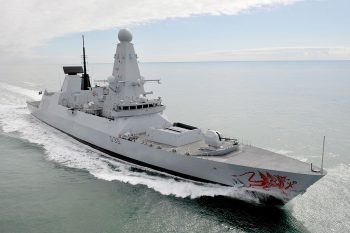UKRAINE INVASION: Putin has almost no chance of successfully occupying Ukraine – Atlantic Council on GEO´
UKRAINE INVASION: Putin has almost no chance of successfully occupying Ukraine – Atlantic Council on GEO´
By Ben Connable – Syndicated By: GEO´ PRWire Gibraltar
Ukrainians are bravely defending their country against Russian aggression, but President Vladimir Putin’s forces have seized or are on the verge of seizing a number of cities across southern and eastern Ukraine.
In the coming months, Russia could potentially gain control over approximately half of the country running from Kyiv in the north to Odesa in the south and the Donbas in the east. If they are successful, Russian occupying forces will assume responsibility for approximately 20 million people across an area the size of Norway.
This would be a daunting task even in the best of circumstances. Unfortunately for the Russians, they face the worst of circumstances for an occupying power. Historical cases of occupation and counterinsurgency suggest an impending disaster. There is almost no chance that Russia will successfully occupy Ukraine.
Successful occupations by foreign powers have some notable commonalities. Generally, chances for a smooth occupation increase when the occupier is welcomed by the population; is supporting an acceptable local government; can count on competent local defense forces; applies patient, humane population control tactics; has denied sanctuary to insurgents; and has kept antagonistic foreign powers from disrupting the occupation. All occupations face challenges, but some succeed. Coalition occupations of Germany, Bosnia, and Kosovo were generally successful.
Ukraine will be unlike any of these cases. Assuming Russia occupies large parts of Ukraine (Putin may still decide to negotiate a withdrawal), and assuming Ukrainians continue to resist occupation, a number of factors will line up for and against the Russians. Learn More/…
About Atlantic Council
The Atlantic Council promotes constructive leadership and engagement in international affairs based on the Atlantic Community’s central role in meeting global challenges. The Council provides an essential forum for navigating the dramatic economic and political changes defining the twenty-first century by informing and galvanizing its uniquely influential network of global leaders. The Atlantic Council—through the papers it publishes, the ideas it generates, the future leaders it develops, and the communities it builds—shapes policy choices and strategies to create a more free, secure, and prosperous world. Learn More/…
Image Credit: Atlantic Council








